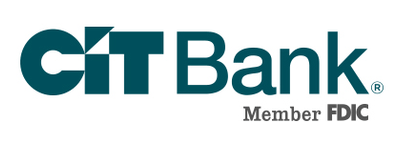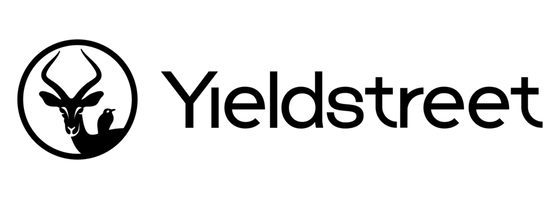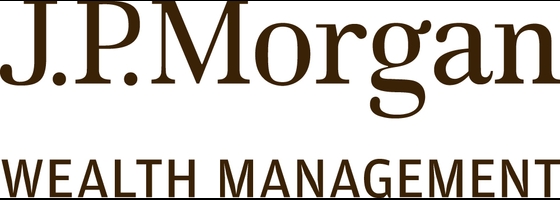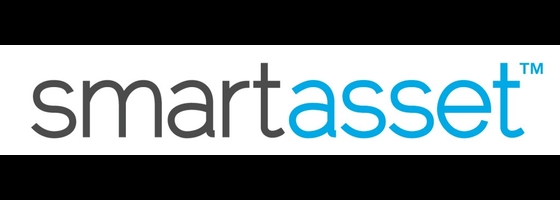12 Passive Income Ideas for 2024

Our evaluations and opinions are not influenced by our advertising relationships, but we may earn a commission from our partners’ links. This content is created by TIME Stamped, under TIME’s direction and produced in accordance with TIME’s editorial guidelines and overseen by TIME’s editorial staff. Learn more about it.
Your job isn’t the only way you can make money. The cash stream from sources of passive income requires some upfront work, but once established, takes little to no time to maintain. While it can take some time to see the fruits of your labor pay off with passive income, earning money without regular work is possible.
Some common ways to earn passive income include investing and starting a business that can mostly run itself.
Earning rewards is a great way to earn money back from actions you’re already taking. Cash-back rewards cards allow you to earn a percentage of your purchase amount without much effort on your part. Some even offer signup bonuses after spending a certain amount on purchases within a predetermined time frame. Depending on what you tend to put on your credit cards, some may even offer higher rewards for certain purchase categories.
Citi Custom Cash® Card | Citi Double Cash® Card | |
|---|---|---|
| Credit score needed | Excellent, Good | credit_score_needed |
| Annual fees | annual_fees | annual_fees |
| Welcome offer | bonus_miles_full | bonus_miles_full |
For example, the Citi Custom Cash® Card offers a $200 signup bonus once you spend $1,500 in purchases within the first six months. You’ll also earn 5% cash back on your top qualifying purchase category. For a simpler option, the Citi Double Cash® Card offers 2% cash back across all purchase categories—you earn 1% when you make the purchase and an additional 1% when you pay it off.
You can also earn rewards through other means, such as signing up for money-making apps. Some allow you to earn money (or cash back) for purchases you already plan on making. All you need to do is to sign up for an account through the app and make your purchase at a qualifying retailer. Or, you can sign up for services you plan on using anyway, and some apps will offer rewards, which you can convert into straight-up cash or gift cards.
Some of these apps include:
Signing up for loyalty programs through retailers you frequent is another good strategy to earn free perks. Although they may not come as cash, the rewards can save you money you might have spent otherwise. Then you can use that unspent money in other ways to earn passive income.
For example, many hotel chains have loyalty programs. After staying at their properties for a certain amount of nights, you may be able to get upgraded or get free hotel stays. In this instance frequent travelers —whether for personal or business — may be able to earn rewards faster without much additional effort.
A certificate of deposit (CD) is basically a timed high-yield savings account. You put your money in for as little as 6 months and as long as 5 years. When you deposit money, the bank will offer a certain interest rate which will be deposited regularly into your CD account (usually monthly). CDs have become popular in recent months as CD interest rates have gone from years of essentially zero to up to 5% today. An excellent option would be the no penalty, 11 monthsCD offered by CIT which can yield as much as 3.50% ($1,000 minimum opening deposit, terms apply). Keep in mind that 3.50% gain on an 11 months CD worth $10,000 is $350.
RELATED: High Yield Savings Accounts
Earning regular rental income means you’ll need to purchase, prepare and manage a property. Whether you’re renting it out for short- or long-term purposes, once established, can provide you with a predictable income source.
If you're interested in real estate investing but don't want to manage a property yourself, a platform like Realty Mogul may be worth considering. Realty Mogul is a real estate investment platform that allows individuals to invest in commercial real estate properties with as little as $5,000. Through the platform, investors can access a range of real estate investments, including rental properties, commercial buildings, and development projects. By investing in a diversified portfolio of properties through a platform like Realty Mogul, you can potentially earn rental income without the hassle of managing a property yourself.
Investing some upfront cash can get you passive income since you won’t have to do much other than watch your investment value go up and down. Aside from securities such as stocks and bonds, consider alternative investments including physical metals and even fine art.
Don’t think you have enough money to invest in fine art? Platforms such as Masterworks allow you to buy shares representing an investment in the artwork—think Warhol and Banksy. You can vet the pieces on the website by looking at historical and average growth, and SEC documents.
1.5% annual management fee.
20% of any profits.
One-time cash “expense allocation”
Yieldstreet offers access to a wide range of private equity investments as well as a variety of other types of alternative investments.
Are you a photographer or love to draw? Consider setting up a website or on online marketplaces like Etsy where you can sell digital downloads of your artwork or photos. Platforms like Squarespace (use TIME10 promo code and get 10% off) make it easy for anyone to create a professional-looking website without needing extensive technical skills. Once you set it up, you’ll need to market your work to help sell more.
If you’re not sure how to facilitate the sale, platforms like Flippa can guide you through the process, including brokering the deal or helping with the legalities. Or, if you want to buy an existing business that’s already profitable and fairly passive, you can find one through Flippa or similar platforms.
If you purchase a dividend-yielding stock, you'll receive regular payments from the company. In most cases, companies will pay out dividends quarterly, and the more shares you own, the more dividends you'll receive. For those who don't want to pick individual stocks, you can consider dividend-yielding ETFs and mutual funds.
It’s worth noting that even high-yield stocks require a significant investment in order to produce enough income to live on. For example, the drug company AbbVie is considered a “dividend aristocrat” that has paid a steady dividend its whole life. It only pays around $5.00 per share per year in dividends. To make $40,000 per year with AbbVie stock, you will need to own 8,000 shares, which is worth $1,272,000 as of March 29, 2023.
Online brokerage platforms like J.P. Morgan Self Directed Investing can provide a user-friendly interface for buying and selling stocks, ETFs, and other investment options.
INVESTMENT AND INSURANCE PRODUCTS ARE: NOT A DEPOSIT • NOT FDIC INSURED • NO BANK GUARANTEE • MAY LOSE VALUE
It may be helpful to consult with a financial advisor to develop a well-rounded investment strategy that meets your financial goals and risk tolerance. SmartAdvisor by SmartAsset is one example of a financial advisor service that can connect you with qualified financial advisors in your area to provide personalized investment advice and guidance.
Affiliate marketing happens when you share and recommend products to others and earn a commission each time someone purchases the product. Popular ways people share their affiliate links include social media, their website and email newsletters.
You may not need to invest a lot of money for this passive income stream, but it could take a lot of time and effort to get it started. People with fewer than 1,000 followers have a harder time convincing affiliates to add them as partners, and you make the most money when you have 50,000 followers or more. The influencer marketing blog HypeAuditor surveyed self-described influencers and found that micro-influencers (1,000 to 10,000 followers) earned on average $1,420 per month, and mega influencers with over 1,000,000 earned an average of $15,356 per month.
This type of personal loan is where you (as a peer) lend money to borrowers. You’ll earn income in the form of interest paid back. To help reduce risk of borrower default, you can spread out the money you invest, or lend to others.
You can get a less stressful, if less lucrative return on real estate investments with a real estate investment trust (REIT), which is a fund that invests in real estate and pays you a handsome dividend.
REITs don't require you to purchase and manage your own property. Instead you buy shares in companies that own commercial real estate such as apartment complexes, hotels, and office spaces. In return, you'll receive regular dividends. But like the dividend stocks mentioned above, you may have to make a considerable down payment to get enough return to live off of.
If you have a parking spot or space to park a car on your property that you're not using, you can cash in by renting it out to others. Some may want to park their car when commuting to and from work, or for the longer term (like if they're traveling). If you have the means, you can even consider renting out a space for others to park large vehicles such as RVs or boats.
Instead of purchasing and renting out a whole home, you can start small in real estate investing by renting out a room in your home. It could be for a short-term rental (like AirBnb), several months, or even as a space for someone to store their items.
You’ll most likely need an active and dedicated audience who will buy your products. You can create online courses, ebooks, or even workshops where you teach others a skill they want to learn.
Free plan: $0; Plus Plan: $19.99 monthly or $149.99 annual best value; Other fees may apply*
Found is a financial technology company, not a bank. Business banking services are provided by Piermont Bank, Member FDIC. The funds in your account are FDIC-insured up to $250,000 per depositor for each account ownership category. The Found Mastercard Business debit card is issued by Piermont Bank pursuant to a license from Mastercard Inc. and may be used everywhere Mastercard debit cards are accepted.
*Advanced, optional add-on bookkeeping software available with a Found Plus subscription for $19.99/month or $1149.99/year. There are no monthly account maintenance fees, but transactional fees for wires, instant transfers, and ATM apply. Read more here.
Passive income is a type of regular income earned without working for an employer or job. It doesn’t require any active work where you’re receiving money in exchange for a service performed. Another way to think about passive income vs. active income is as rent vs. wages.
Once you put in the upfront investment — time, money, and energy — passive income takes little effort to maintain – you get paid for owning stuff. Your passive income can even earn its own money, such as through compound interest from your investments.
Passive income is not a job or working that doesn't produce some type of asset that earns income. In other words, passive income isn't one where you have to be actively involved in order to earn money. It’s also not investments that won’t earn you any consistent returns.
You can have as many income streams as you want, but the right number for you will depend on your goals and current resources. If you don't have a lot of time to devote to establishing many passive income streams, it may make sense to only have a few until you can free up time. Or, if you have a limited budget, you may have to start small and grow your resources over time.
Yes, it takes a bit of work initially to be able to get regular passive income, but the effort can be worthwhile. When deciding on which passive income stream you want to pursue, think about how much time and money you can put into it right now. As you continue to grow your income, you may want to seek the help of a financial advisor to help you further manage your money.
It is possible to make passive income with no money, but you may need to devote more time and effort for it to provide you with significant income.
You may be able to legally lower your taxable income by claiming any relevant expenses you put towards growing your passive income sources (such as qualifying business expenses), or putting some of the money earned towards tax sheltered accounts, like a traditional or SEP IRA.
The information related to Citi Double Cash® Card has been collected by TIME Stamped and has not been reviewed or provided by the issuer or provider of this product or service.
The information presented here is created by TIME Stamped and overseen by TIME editorial staff. To learn more, see our About Us page.










